
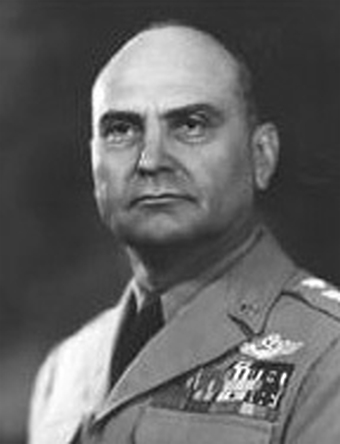
One of the founding fathers of the Air Force, General Ira C. Eaker had
an exceptionally distinguished military career, both as an aviator and
as a leader.
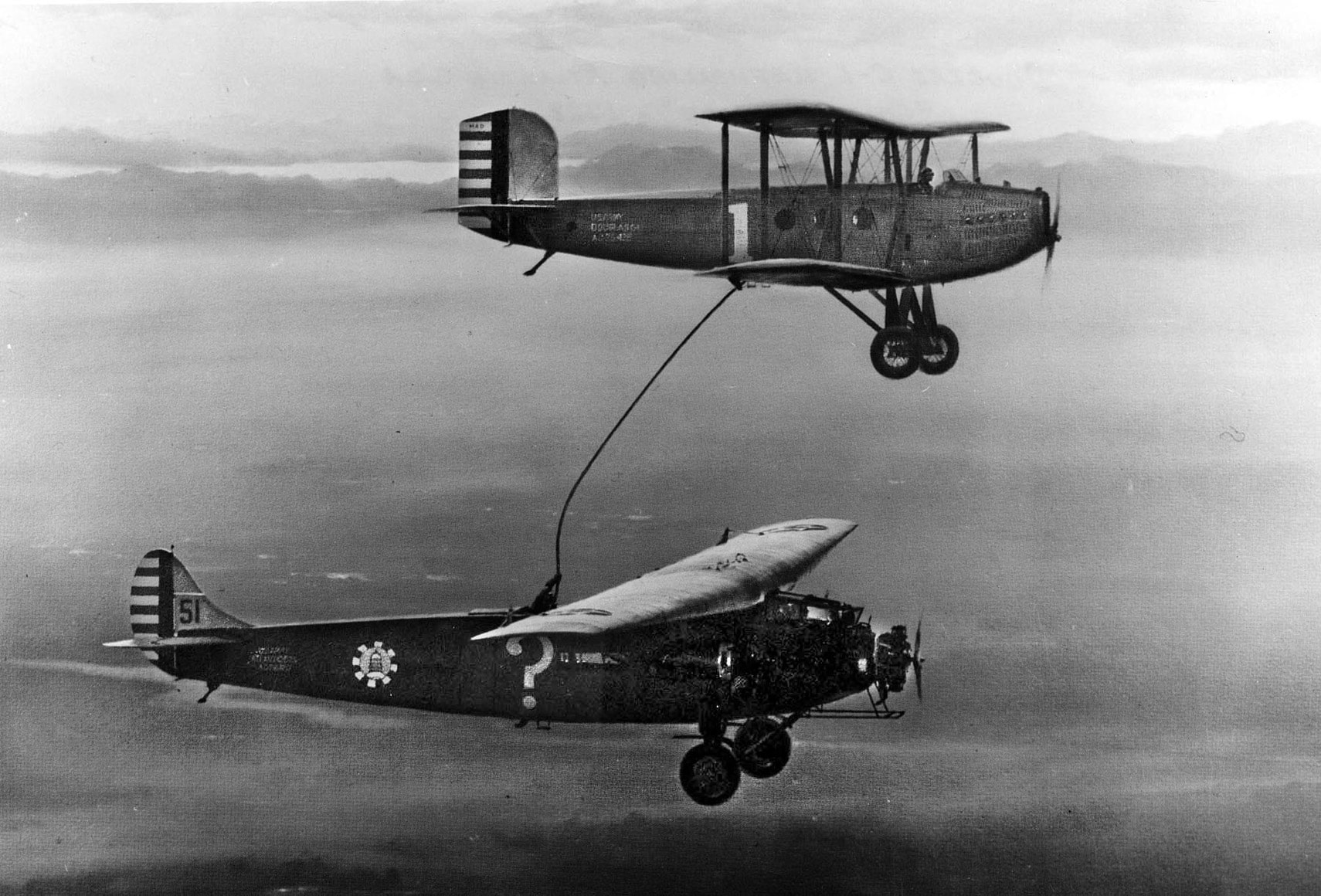
As an aviator, he set a new world flight endurance record in 1929,
staying aloft for nearly a week by refueling in the air, and later
made the first "blind" transcontinental flight entirely with
instruments. As a leader, he was the Eighth Air Force commander in
World War II and commander-in-chief of the Mediterranean Allied Air
Forces, and after the war served as the deputy commander of the Army
Air Forces and chief of the Air Staff until 1947.
That very abbreviated list of his many accomplishments is impressive,
no doubt, but what was it about him that merits his inclusion in a
Public Affairs Hall of Fame? It turns out this great air warrior was,
at heart, a journalist.
A graduate of the University of Southern California with a degree in
journalism, General Eaker was a talented communicator, prolific
author, widely read newspaper columnist, and strong advocate for
airpower. In 1937 he became assistant chief of the Information
Division in the Office of the Chief of Air Corps at Washington, D.C.
— serving as one of the first full-time military public affairs
officers. With fellow PA Hall of Famer General Hap Arnold, General
Eaker co-authored three books:
This Flying Game
in 1936,
Winged Warfare
in 1937, and
Army Flyer
in 1942.
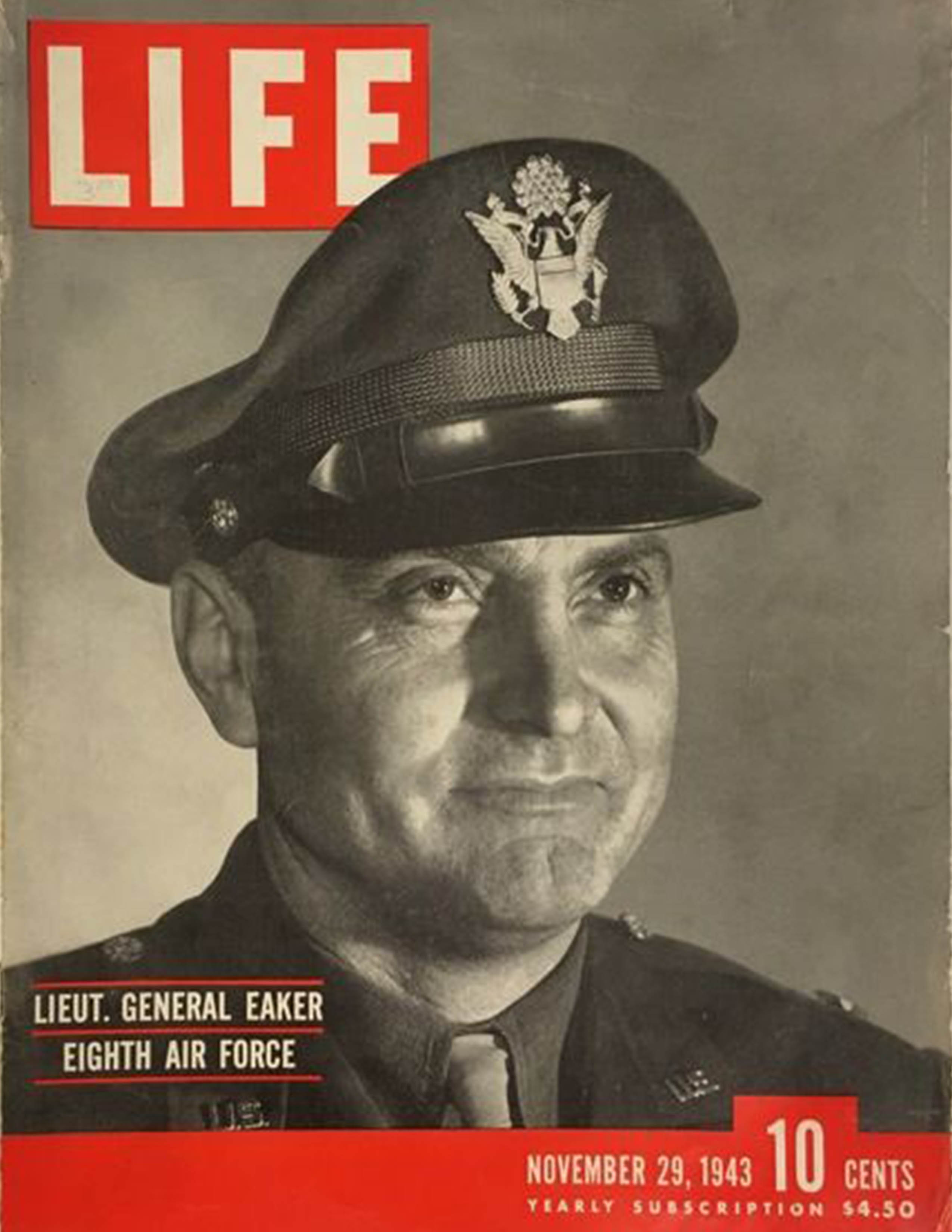
In World War II, his eloquence and power of persuasion convinced a
reluctant Winston Churchill of the value of daylight precision
bombing, despite the misgivings of his own RAF, which considered
daylight bombing too risky. General Eaker gained Churchill’s approval
of his strategy with a one-page memo explaining how the combination of
the daytime tactics of the Americans and the nighttime tactics of the
British would complement each other, concluding that "If the RAF
continues night bombing and we bomb by day, we shall bomb them round
the clock and the devil shall get no rest."
After his military retirement in 1947 and leadership roles at Hughes
Aircraft and Douglas Aircraft companies, General Eaker found the time
to put his USC journalism degree to good use. Already an accomplished
book author, in 1964 he began a newspaper column in the
San Angelo Standard Times. Focusing on military affairs, his
popular column ran for eighteen years in over 700 newspapers,
syndicated first by Copley News Services and later by the Los Angeles
Times Syndicate. In 1972, he founded Strategic Review, a
quarterly journal devoted to scholarly discussion of national security
issues.
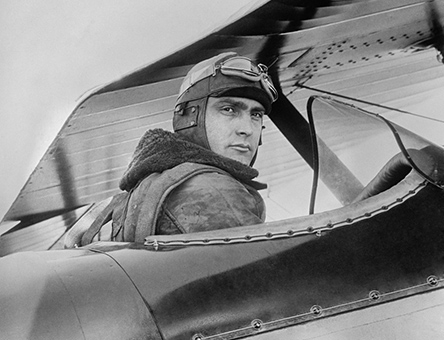

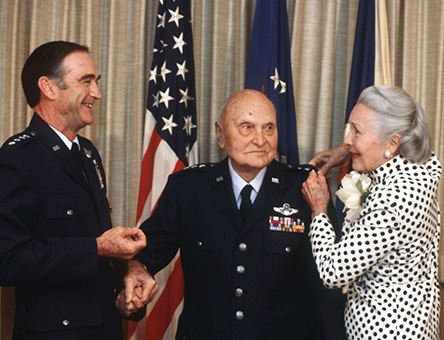
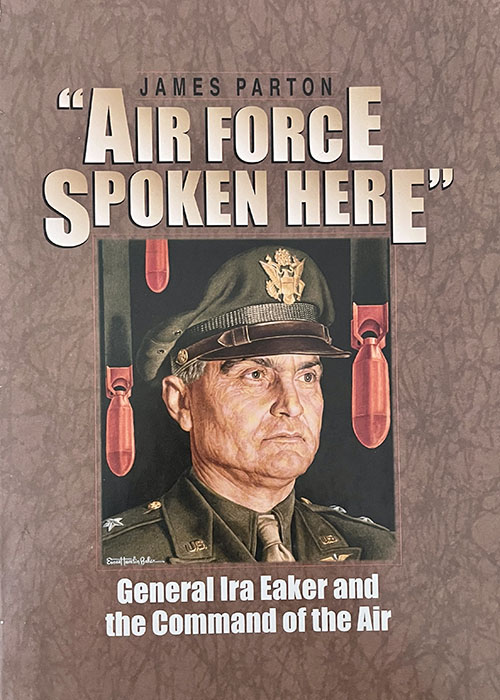
In 1978, General Eaker was awarded a special Congressional Gold Medal
in recognition of his contributions to aviation, and in 1985, almost
forty years after his retirement from active duty, he was promoted to
full general by presidential direction and Senate consent. Fittingly,
Air University's Center for Leadership Development is named after him.
Want to learn more about this student of journalism who is rated as
one of the "great captains of air war" by military historians? His
official Air Force biography is here.
In a 1943 issue,
Time magazine
described the challenges Eighth Air Force and its commander faced
during the second world war. More recently, Gen Eaker was featured in
the January/February 2024 issue of
Air & Space Forces magazine.
Gen Eaker's wartime aide, James Parton, wrote the most comprehensive
biography of General Eaker, entitled
Air Force Spoken Here.
That book title is certainly an appropriate description of one of the
Air Force's greatest leaders, and, in those four words, pointedly
highlights why General Eaker undoubtedly was also one of its finest
public affairs officers.